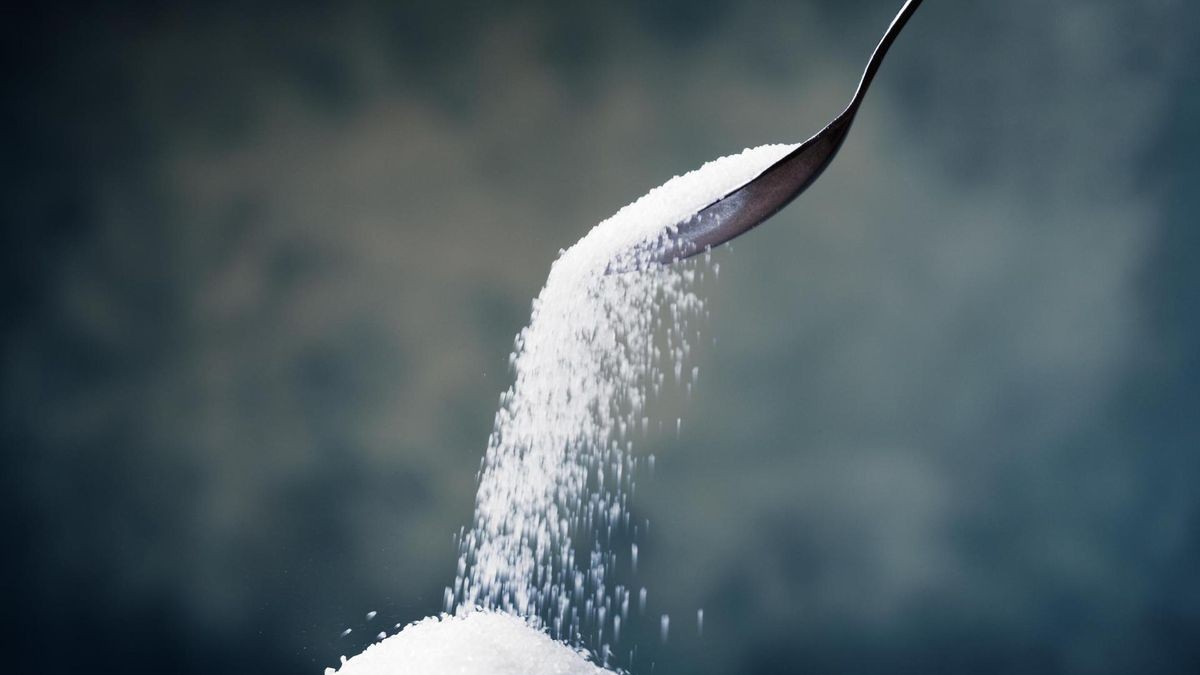Berlin. Premature skin aging can be caused by poor nutrition. Many foods – even fruit – can promote the formation of wrinkles.
Everyone knows that it is not healthy to eat chips or sweets regularly. But do you know that certain foods are not only harmful to the body, but also make our skin age faster? Early wrinkles can have different causes – eating the wrong foods over the years is one of them. What is one of the biggest Wrinkle accelerators counts, explains nutritional doctor Dr. Matthias Riedl.
Our expert
Dr. Matthias Riedl is a nutritional doctor, diabetologist and medical director of Medicum Hamburg. Since 2015 he has been part of the NDR program “Die Ernährungs-Docs”, which he conceived, in which Dr. Riedl develops nutritional strategies for specific patient cases together with other physicians. Several accompanying books have been published for the program. In addition, Dr. Riedl has been running the podcast “So geht gesunde Ernährung” (This is how healthy nutrition works) in collaboration with the Funke Media Group since 2022.
Stimulants accelerate wrinkle formation
Sooner or later, everyone gets wrinkles – this cannot be prevented unless you use cosmetic products such as hyaluronic acid injections or Botox. It is completely normal for the skin to become looser and less elastic as we get older. The reason for this is the body’s decreasing performance: the cells take longer to regenerate, the collagen structure becomes weaker and the skin loses moisture because fewer lipids (fats) are produced.
However, skin aging can begin earlier than biologically intended. The undisputed wrinkle accelerators include stimulants, explains Dr. Riedel: “nicotine actually creates a very typical skin appearance. We have much more pronounced wrinkles, with larger wrinkles and finer wrinkles. It really does age your face worse.” And an excess of alcohol can also worsen the skin’s appearance.
What is missing from the body when it comes to wrinkles?
But diet should not be underestimated either. Any lack of nutrients can damage the skin. According to Dr. Riedel, supposedly healthy diets – from vegetarian to gluten-free – can lead to malnutrition and thus skin problems.
It is particularly bad for the skin if we do not consume enough nutrients that play a role in the structure of our skin – such as Biotin, zinc and seleniumA lack of protein can also affect the skin: “If we consume too little protein, we lack collagen and elastin.”
It is mainly thanks to these two substances that we do not develop wrinkles so quickly. The collagen fibers combine with elastin to form a strong network that gives the skin the necessary elasticity. However, if too little collagen is secreted due to a protein deficiency, this can result in sagging skin.
Ready-made products act as wrinkle accelerators
A chronic lack of “real nutrients,” according to Dr. Riedel, is the root of a skin-aging diet. At the top of the list of wrinkle accelerators are finished products“because they simply do not contain what we need.” Pizza, fries etc. usually have a lot of calories but do not provide any vitamins or minerals.
In addition, highly processed foods often contain artificial Phosphates which also cause the skin to age faster, explains the nutritionist. They are used as binding and acidifying agents in sausage, processed cheese and soft drinks, as Stiftung Warentest reports.
Phosphates are natural compounds that occur in almost all foods and are important for maintaining bones, teeth and tissue. However, too much phosphate is considered harmful, not only for tissue but also for the kidneys. This is why the European Food Safety Authority (EFSA) set a recommendation for the daily intake of phosphates for the first time in 2019.

Microwave meals may contain artificial phosphates.
© iStock | FreshSplash
All foods that are prepared in such a way that they can either be eaten immediately or only need to be cooked are considered highly processed. These include:
- Frozen food (pizza, chips, vegetable stir-fries, bread rolls)
- Microwave meals
- Packet soups
- Instant noodles
- Sauces
- Seasoning mixes to mix
- Canned fish
- Canned fruit
Glycation: Sugar glues the collagen structure
If you care about your health and your skin, you should avoid processed foods and foods that contain sugar, advises Dr. Riedl. But this does not only apply to the typical sugar bombs like milk chocolate, wine gums or cakes. The nutrition expert also recommends “very, very sugary fruit“ on the red list.
Basically, all foods with a high glycemic indexi.e. those that lead to a strong increase in blood sugar, are problematic for the skin. Too much sugar in the blood can Glycation which is also known colloquially as skin glycation: Sugar molecules can attach themselves to collagen molecules, resulting in so-called sugar end products. These are deposited because they cannot be metabolized by the body. This can cause the collagen fibers to clump together. This means that the skin can age faster if the body is constantly exposed to too much sugar.
These are foods with a high sugar content:
- milk chocolate
- Bakery products
- Muesli
- Fruit yoghurts
- Dried fruit
- Fruit with high sugar content (e.g. pineapple, grapes)
- Canned fruit
- Fruit purees
- White bread
- Sauces and dips
- Juices, soft drinks and smoothies
Important: Whether it’s refined sugar in chocolate or fructose in fruit – the body metabolizes both in a similar way. Fruit does have a high nutrient content, which chocolate, biscuits, etc. do not. But too much of it is just as harmful to the collagen structure as refined sugar.
Inflammaging: Skin aging caused by sugar
Just the idea of sticky tissue can certainly prevent many people from eating too much sweet stuff. In addition, sugar – just like processed foods – stimulates inflammatory processes in the body, says Dr. Riedl. Inflammation in the body contributes to premature (skin) aging. Significantly, there is the term “Inflammaging“ – derived from the English terms “inflammation” and “aging”. That is why Dr. Riedl recommends an anti-inflammatory diet.
The German Nutrition Society recommends a maximum intake of 50 grams of sugar per day. To put it in perspective: This amount of sugar is roughly equivalent to a bar of chocolate or two pieces of cake. That’s why it’s better to aim for a smaller amount.

If there is too much sugar in the body, the collagen structure can be damaged in the long term.
© iStock | stocksnapper
Study on women: Unhealthy diet causes more wrinkles
A much-noticed study by dermatologists at Erasmus University Rotterdam in 2018 also shows that the skin ages faster when you eat an unhealthy diet. The research team examined 1,613 women and 1,150 men with an average age of 67.
Nutritional questionnaires were used to determine how healthy the test subjects’ diet was. The basis for the assessment was the “Dutch Healthy Diet Index” (DHDI). The higher the score on the rating scale, the healthier the diet. The results were: With an increase of 10 points on the scale, the proportion of wrinkles fell by 4.4 percenteven when possible influencing variables such as BMI, age or nicotine consumption were taken into account. However, a significant association was only found in women.
The results also showed that women who ate an unhealthy diet had Wrinkle percentage significantly higher than in women who had a healthy diet. The researchers classified a high consumption of red meat, processed foods, soft drinks, coffee and alcohol as unhealthy. A diet with lots of vegetables, fish, white meat, nuts and seeds was classified as healthy.
A healthy lifestyle benefits the skin
The study does not allow any causal conclusions to be drawn – it is not clear whether diet really has such a big influence on the formation of wrinkles. This is especially true because the participants’ self-reports about their eating habits can be subjectively distorted. It is also likely that people who pay attention to their diet generally lead a healthy lifestyle, i.e. they exercise a lot, get enough sleep and pay attention to their stress levels. These factors are at least as important for skin health as diet.
However, it is undisputed that certain foods trigger processes in the body that have a negative effect on the skin. Simply avoiding highly processed products and sweets can help maintain the status quo of your skin for longer.
Sources
Mekic, S. (et al.): A healthy diet in women is associated with fewer facial wrinkles in a large Dutch population-based cohort, in: Journal of the American Academy of Dermatology2018, Vol. 80 (5).
Phosphates in food. Too much is bad for the kidneys, in: test.de (Stiftung Warentest)
EFSA publishes new recommendations on phosphates, in: efsa.de (European Food Safety Authority)
Recommendation for maximum sugar intake in Germany, in: dge.de





